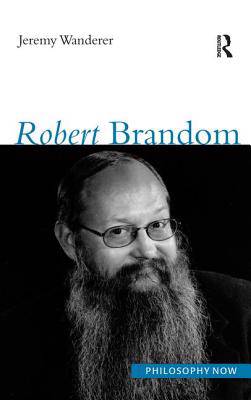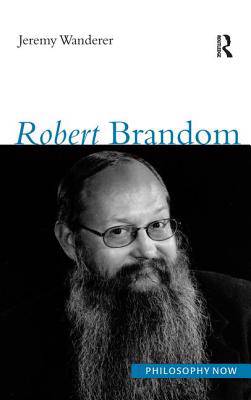
- Retrait gratuit dans votre magasin Club
- 7.000.000 titres dans notre catalogue
- Payer en toute sécurité
- Toujours un magasin près de chez vous
- Retrait gratuit dans votre magasin Club
- 7.000.0000 titres dans notre catalogue
- Payer en toute sécurité
- Toujours un magasin près de chez vous
Description
"Robert Brandom" is one of the most significant philosophers writing today, yet paradoxically philosophers have found it difficult to get to grips with the details and implications of his work. This book aims to facilitate critical engagement with Brandom's ideas by providing an accessible overview of Brandom's project and the context for an initial assessment. Jeremy Wanderer's examination focuses on Brandom's inferentialist conception of rationality, and the core part of this conception that aims to specify the structure that a set of performances within a social practice must have for the participants to count as sapient beings by virtue of their participation in the practice, and for the performances within the practice to have objective semantic content by virtue of their featuring within the practice. Wanderer's exploration of these two goals forms the structure to the book. It Includes: Part I that provides a structural model of linguistic practice and considers various groups of potential participants in terms of their relationships to this practice; and, Part II that examines the meaning of the performances that are caught up in this gameplaying practice. Brandom's approach to semantics is outlined and the challenge such an approach has in allowing for a representational dimension of language and thought is explored. Wanderer offers readers a valuable framework for understanding the Brandomian system and helps situate Brandom's systematic theorizing within contemporary Anglo-American philosophy. This book will be a sought after aid to reading Brandom for advanced students and philosophers engaging with his challenging body of work.
Spécifications
Parties prenantes
- Auteur(s) :
- Editeur:
Contenu
- Nombre de pages :
- 256
- Langue:
- Anglais
- Collection :
Caractéristiques
- EAN:
- 9781844650873
- Date de parution :
- 01-11-06
- Format:
- Livre relié
- Format numérique:
- Genaaid
- Dimensions :
- 138 mm x 216 mm
- Poids :
- 452 g

Les avis
Nous publions uniquement les avis qui respectent les conditions requises. Consultez nos conditions pour les avis.






